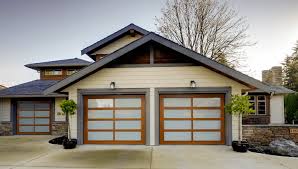I’ve been dealing with a frustrating issue where my garage door keeps opening on its own, and it’s quite concerning. Through my research and troubleshooting, I’ve come across several potential causes for this problem.

Let me share my insights with you based from Garage Door Repair Alpharetta GA:
Firstly, I suspect that there might be interference with the garage door opener’s remote control signal. It’s possible that nearby devices operating on similar frequencies, like a neighbor’s remote or a malfunctioning wireless device, are inadvertently triggering my garage door to open. To address this, I’ve tried changing the remote control’s battery and reprogramming it. I’ve also looked into adjusting the remote’s frequency or dealing with any interference according to the opener’s manual.
Another possibility is a faulty remote control. I’ve carefully inspected my remote for any signs of physical damage, such as stuck or worn-out buttons. If I suspect that my remote is causing the issue, I plan to try using a different remote or obtaining a replacement from the manufacturer.
I’ve also examined the keypad and wall button. Sometimes, issues with these components can lead to the garage door opening unexpectedly. I checked for stuck buttons or any damage to the keypad or wall button. I made sure to clean the buttons thoroughly and ensure that they are not being pressed accidentally. If necessary, I’ll consider replacing the keypad or wall button.
Next, I turned my attention to the wiring. Faulty or damaged wiring can disrupt the electrical signals and trigger the garage door to open unexpectedly. I’ve carefully inspected the wiring connections between the opener, wall control, sensors, and other components. I looked for loose, frayed, or chewed wires, as well as any signs of corrosion. If I notice any wiring issues, I plan to seek assistance from a professional technician or an electrician to handle the necessary repairs.
Considering that the problem might lie with the garage door opener itself, I’ve taken into account the possibility of a malfunctioning or defective opener. Internal issues within the opener, such as a faulty circuit board or a malfunctioning control module, can cause the door to open spontaneously. If I determine that my opener is at fault, I will contact a professional technician who specializes in garage door opener repairs. They can diagnose the problem accurately and recommend appropriate solutions, which may involve repairing or replacing the opener.
I’ve also considered the potential of external sources causing interference. Radio signals from nearby devices, power surges, or even lightning strikes can inadvertently trigger the garage door to open. To address this, I’m planning to install a surge protector for my garage door opener system. Additionally, I’ll make sure that the opener’s antenna is properly extended and positioned for optimal signal reception.
In my troubleshooting process, I’ve checked the alignment of the safety sensors. Misaligned sensors can cause the garage door to reverse and open unexpectedly. I’ve made sure that the sensors are properly aligned and facing each other. I’ve removed any obstructions, cleaned the sensor lenses, and ensured they are not damaged. If needed, I adjusted the sensors following the manufacturer’s instructions.
Furthermore, I considered the possibility of faulty limit switches affecting the garage door’s operation. These switches regulate the travel distance of the door. If they are faulty or out of adjustment, they may cause the door to open beyond its intended limits. I consulted the opener’s manual to locate the limit switches and adjusted them according to the provided instructions. If the switches are damaged or non-functional, I would contact a professional to handle the necessary repairs or replacement.
Lastly, I took into account environmental factors that could impact the garage door’s operation. Extreme temperature changes, moisture, or high winds can affect the door’s functionality. I inspected the door’s seals, weatherstripping, and tracks to ensure they are in good condition. Regular lubrication of the moving parts and addressing any issues related to the door’s balance or alignment are essential.
While troubleshooting, I’ve been mindful of the safety implications of working with a garage door. If I feel unsure or uncomfortable with any of the troubleshooting steps, I won’t hesitate to seek professional assistance. They have the expertise and experience to handle these types of repairs safely and effectively.
Overall, as stated in Garage Door Repair Alpharetta GA, by methodically addressing these potential causes and troubleshooting steps, I’m confident that I can identify and resolve the issue causing my garage door to open unexpectedly.
Alpharetta Garage Door Repair
5200 Avalon Blvd building 5000, Alpharetta, GA 30009, United States
678-379-5834




